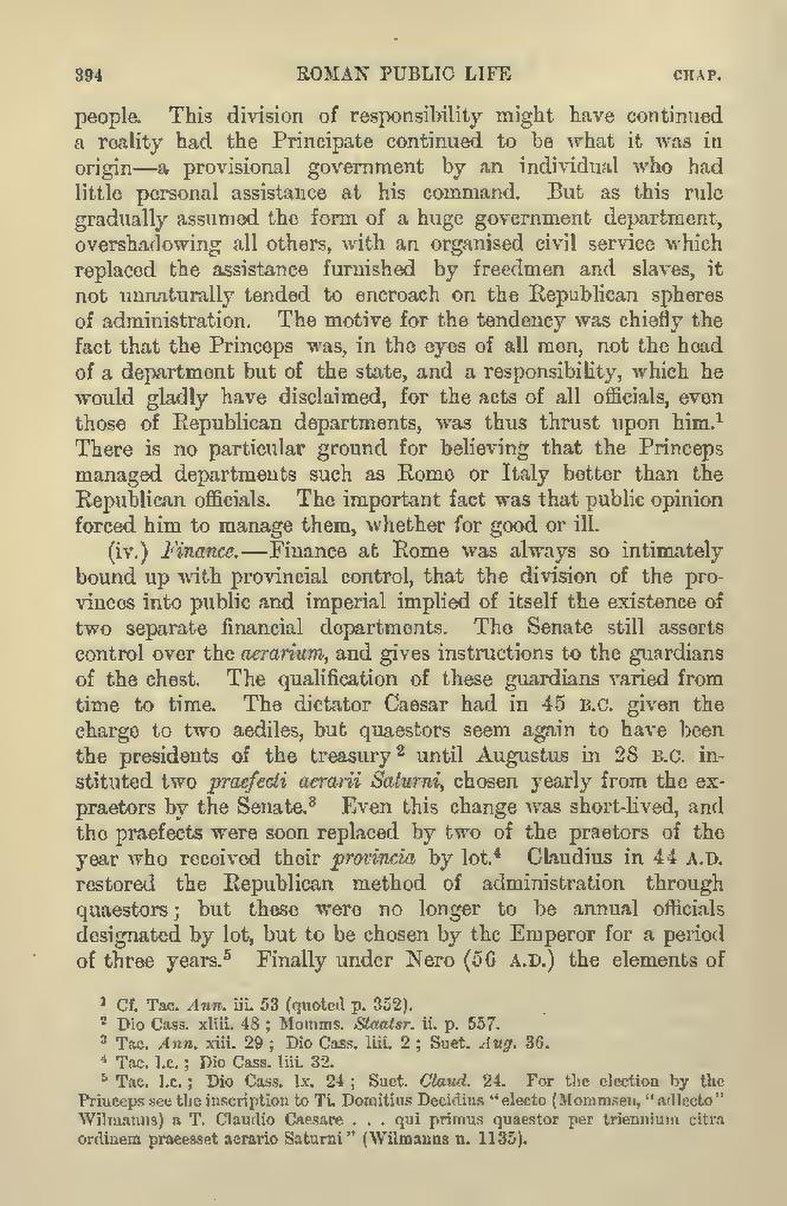people. This division of responsibility might have continued a reality had the Principate continued to be what it was in origin—a provisional government by an individual who had little personal assistance at his command. But as this rule gradually assumed the form of a huge government department, overshadowing all others, with an organised civil service which replaced the assistance furnished by freedmen and slaves, it not unnaturally tended to encroach on the Republican spheres of administration. The motive for the tendency was chiefly the fact that the Princeps was, in the eyes of all men, not the head of a department but of the state, and a responsibility, which he would gladly have disclaimed, for the acts of all officials, even those of Republican departments, was thus thrust upon him.[1] There is no particular ground for believing that the Princeps managed departments such as Rome or Italy better than the Republican officials. The important fact was that public opinion forced him to manage them, whether for good or ill.
(iv.) Finance.—Finance at Rome was always so intimately bound up with provincial control, that the division of the provinces into public and imperial implied of itself the existence of two separate financial departments. The Senate still asserts control over the aerarium, and gives instructions to the guardians of the chest. The qualification of these guardians varied from time to time. The dictator Caesar had in 45 B.C. given the charge to two aediles, but quaestors seem again to have been the presidents of the treasury[2] until Augustus in 28 B.C. instituted two praefecti aerarii Saturni, chosen yearly from the ex-praetors by the Senate.[3] Even this change was short-lived, and the praefects were soon replaced by two of the praetors of the year who received their provincia by lot.[4] Claudius in 44 A.D. restored the Republican method of administration through quaestors; but these were no longer to be annual officials designated by lot, but to be chosen by the Emperor for a period of three years.[5] Finally under Nero (56 A.D.) the elements of
- ↑ Cf. Tac. Ann. iii. 53 (quoted p. 352).
- ↑ Dio Cass. xliii. 48; Momms. Staatsr. ii. p. 557.
- ↑ Tac. Ann. xiii. 29; Dio Cass. liii. 2; Suet. Aug. 36.
- ↑ Tac. l.c.; Dio Cass. liii. 32.
- ↑ Tac. l.c.; Dio Cass. lx. 24; Suet. Claud. 24. For the election by the Princeps see the inscription to Ti. Domitius Decidius "electo (Mommsen, "adlecto" Wilmanns) a T. Claudio Caesare . . . qui primus quaestor per triennium citra ordinem praeesset aerario Saturni" (Wilmanns n. 1135).
